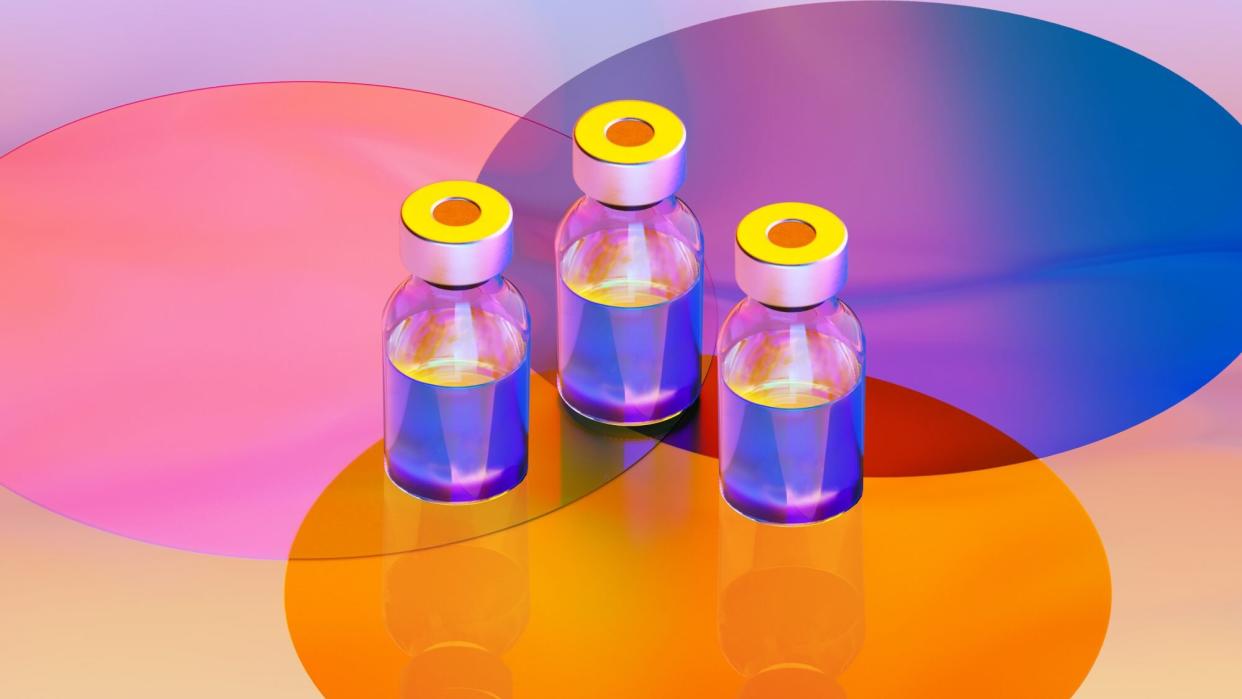The FDA Authorized a COVID-19 Booster Shot for Immunocompromised People

Getty Images
With seemingly new information about COVID-19 popping up each day — along with an alarming rise in cases nationwide — it's understandable if you have questions about how to best stay protected, even if you're fully vaccinated. And while the chatter of potential COVID-19 booster shots ran rampant a few short weeks ago, receiving an additional dose is going to become a reality for some soon.
The Food and Drug Administration authorized third doses of the two-shot Moderna and Pfizer-BioNTech COVID-19 vaccines for immunocompromised people, the organization announced Thursday. The move comes as the highly contagious Delta variant continues to surge across the nation, counting for 80 percent of COVID-19 cases in the U.S., according to recent data from the Centers for Disease Control and Prevention. (Related: How Effective Is the COVID-19 Vaccine?)
Although the coronavirus poses an obvious threat to all, having a weakened immune system — which is the case for about three percent of the U.S. population — "can make you more likely to get severely ill from COVID-19," according to the CDC. The organization has recognized the immunocompromised as recipients of organ transplants, those undergoing cancer treatments, people with HIV/AIDS, and those with inherited diseases that affect the immune system, among others. The FDA said in a press release Thursday that the individuals who will be eligible for a third shot include solid organ transplant recipients (such as kidneys, livers, and hearts), or those who are similarly immunocompromised.
"Today's action allows doctors to boost immunity in certain immunocompromised individuals who need extra protection from COVID-19," said Janet Woodcock, M.D., acting FDA Commissioner, in a statement Thursday.
Research over the third dose of a COVID-19 vaccine for the immunocompromised has been ongoing for some time. Recently, researchers at John Hopkins Medine suggested that there's evidence to illustrate how three doses of the vaccine can increase antibodies levels against SARS-SoV-2 (aka, the virus that causes the infection) in solid organ transplant recipients, versus the two-dose vaccinations. Because people with organ transplants are often required to consume drugs "to suppress their immune systems and prevent rejection" of a transplant, according to the study, there's concern over a person's ability to create antibodies against foreign materials. In short, 24 of the study's 30 participants reported zero detectable antibodies against COVID-19 despite being fully vaccinated. Though, upon receiving the third dose, one-third of patients saw an increase in antibody levels. (Read more: Here's Everything You Need to Know About Coronavirus and Immune Deficiencies)
The Centers for Disease Control and Prevention's Advisory Committee on Immunization Practices is set to meet Friday to discuss further clinical recommendations in regard to immunocompromised people. So far, other countries have already authorized booster doses for immunocompromised folks, including France, Germany, and Hungary, according to The New York Times.
Right now, boosters are not yet approved for those with healthy immune systems, so it remains vital that all people eligible for the COVID-19 vaccine receive it. Along with wearing masks, it's the surest bet to protect those with weakened immune systems or anyone who hasn't yet received their shot.
The information in this story is accurate as of press time. As updates about coronavirus COVID-19 continue to evolve, it's possible that some information and recommendations in this story have changed since initial publication. We encourage you to check in regularly with resources such as the CDC, the WHO, and your local public health department for the most up-to-date data and recommendations.

